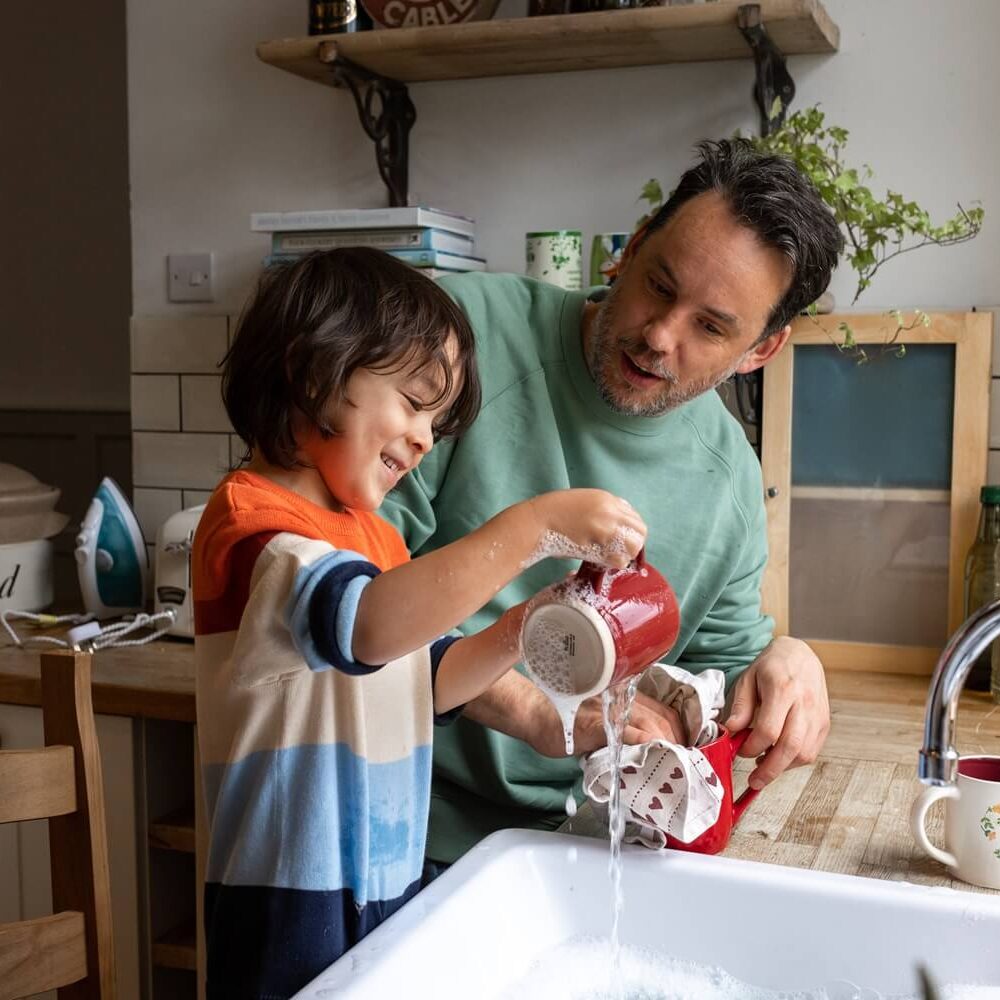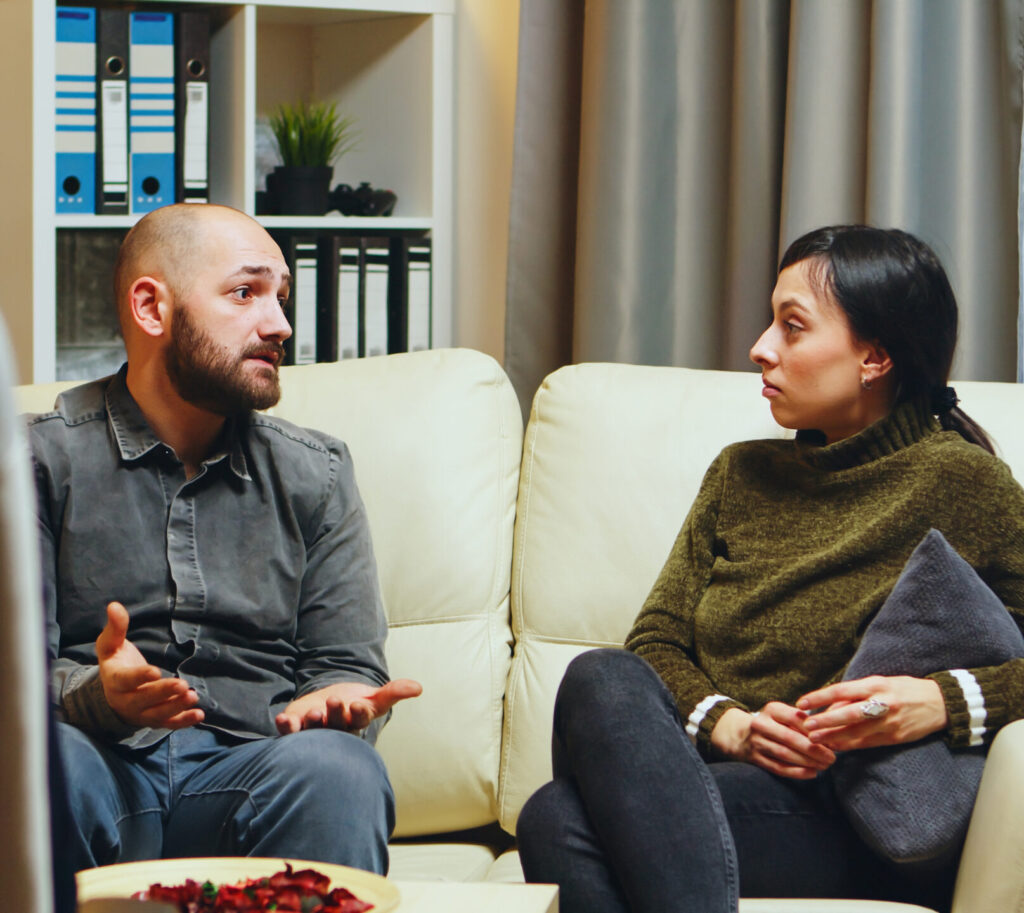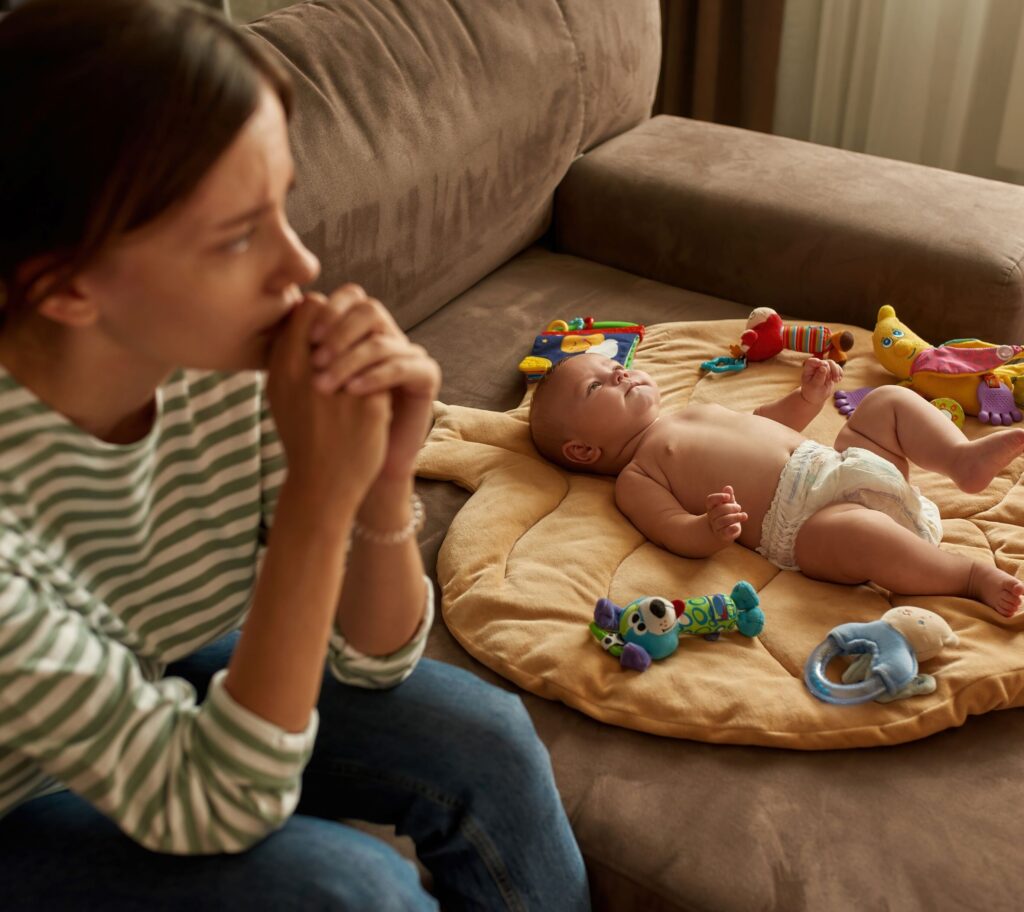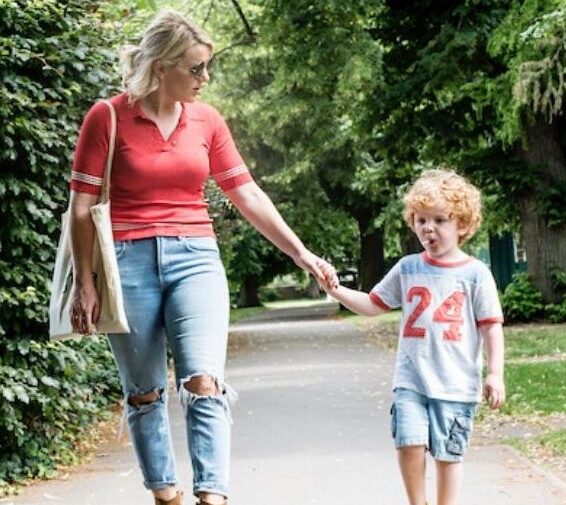If you’re being prevented from seeing your child, whether there’s already an arrangement in place or not, you might be looking for information on your rights. In this article, we’ll consider that along with what you can do and what support is available.
For this article, we’ve spoken to Debbie, Head of Children’s Service in Hertfordshire, who has over 15 years’ experience of managing Family Time Services (Contact Services) for Children and Families.
Here’s some general guidance to think about if you’ve been unable to have contact with your child or are having issues with child contact arrangements. The first thing to consider is if you have parental rights.
Do you have parental rights?
If you’re separated from your child’s other parent, the first question to ask is: do you have parental rights? This is often shortened to PR among professionals and is also known as parental responsibility. If you have parental rights or not is important as it affects the action you can take.
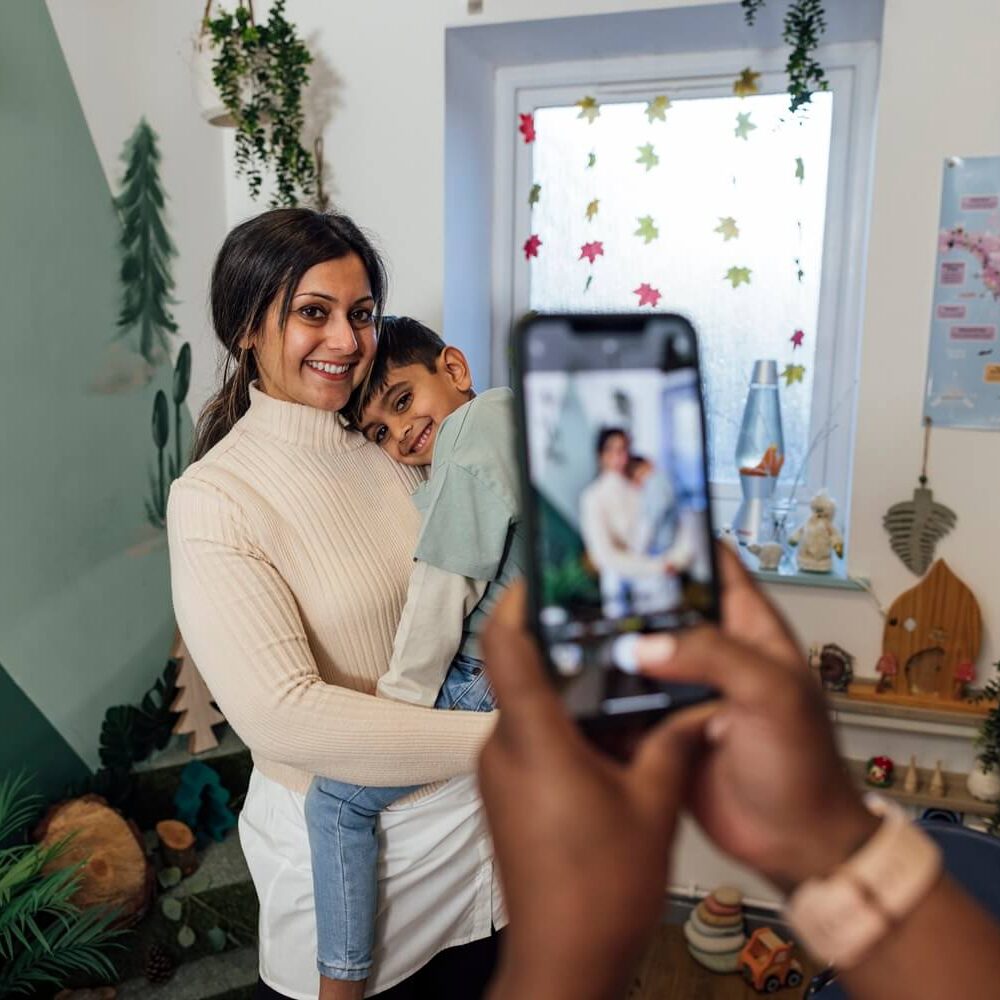
- Mother: The child’s birth mother automatically has parental rights.
- Father: In a couple where the father wasn’t married to the mother, he must be named on the child’s birth certificate to have parental rights.
- Same-sex parents (female): Where both partners are female, the birth mother automatically has parental rights. Her partner or wife also has parental responsibility if they were in a civil partnership or married at the time of the donor insemination or fertility treatment. If they weren’t married or civil partners and have since separated, they don’t automatically have parental rights.
- Same-sex parents (male): For a male same-sex couple who have adopted, the Adoption Order sets out who the child’s legal parents are. If they used a surrogate, the surrogate will be the legal parent at birth and parenthood will need to be transferred by parental order or adoption. For more information, see the government guidance on the legal rights of parents and surrogates.
For those without parental rights, there are some extra steps to take to have the right to contact the child, which we’ll cover in the section ‘If you don’t have parental rights’ below. The same applies for relatives – for example, grandparents – who are being prevented from seeing their grandchild.
Put simply, if you don't have parental rights, then you only have the right to contact if a court has given you some rights such as a child arrangement order or contact order.
If you have parental rights
If you do have parental rights but you aren’t able to see your child, the first step would be to try mediation. You might be able to do this with the help of family members or friends, or you may want to speak to a professional. The idea at this point is to try and find out why you’re being prevented from seeing your child.
The National Association of Child Contact Centres (NACCC) can help with mediation, and there’s lots more information on their website about this. You can also see our article: Family mediation and how it can help with separation.
If mediation doesn’t work, the person who is being prevented from seeing their child has the right to make an application to the family court. You don’t have to have a solicitor to apply to the court, but since many solicitors will give you a 30-minute appointment for free, it’s a good idea to get some free legal advice and make sure you fully understand the process.
When you apply to the court, the Children and Family Court Advisory and Support Service (Cafcass) will carry out a report, with the safety and best interests of the child in mind. The court may also order the local authority to carry out an assessment. This might happen if Cafcass identify safeguarding issues, for example.
Then, based on the assessments, the judge will make a decision on contact. It’s highly unlikely a judge will decide on no contact, but they’ll set out:
- how much contact there should be
- where and when it should happen
- whether it’s supervised or not.
If you don’t have parental rights
If you don’t have parental rights, this is where the situation can become more complicated, and it’s best to get legal advice based on your individual situation before taking any action. There are many potential scenarios and it’s impossible to cover every eventuality in an article like this, but here are a couple of common examples:

A parent who isn’t on the birth certificate
If you’re the parent of the child, you need to apply to the court for parental rights. In other words, you’re saying that you’re the parent of the child despite the fact that your name isn’t on the birth certificate, and requesting that you be recognised as a parent. When you’re granted parental rights, you’re able to apply to the court for contact, as outlined above.
Grandparents
If you’re a grandparent, for example, and you’ve been denied access to your grandchild, the situation is slightly different again. Here, you’ll need to apply to the court to ask the court for permission to make an application for contact. Based on the information given, they will either say yes, you can make an application, or no you can’t.
If there’s already an arrangement in place that isn’t being followed
You might be in the position where there is already a child arrangement order in place (you may have heard this called a custody order in the past). If this is the case, a judge will already have ordered who the child should live with, and also what the terms are for contact with the child.
If the child lives with their other parent and they aren’t keeping to the terms of the court order, you would need to go back to court to apply for enforcement. As part of this, you need to have proof that they didn’t stick to the terms of the order.
If your child is in the care of the local authority, you’ll need to speak to your solicitor or the social worker who was involved in setting out the arrangements.
Finally, your child may be in the care of someone else, such as friends or family (also known as kinship care) or in private fostering. Kinship care can be arranged informally or more formally with the support of the local authority, and there’s a lot more information on this on the Family Rights Group and Kinship websites. In the case of a private fostering arrangement, the local authority should be aware, so for more help you could speak to your social worker. For more information, see the government advice: Looking after someone else’s child.
If you're having issues with child contact arrangements, try to get advice specific to your individual situation if you can, to make sure you take the right action.
More information for anyone having issues with child contact arrangements
For more support, use our service finder to see what Family Action services are available in your area, or get in touch with FamilyLine via web chat, text, email or phone.
You can also take a look at the following organisations:
- Children and Family Court Advisory and Support Service (Cafcass): Cafcass advises the family courts about the welfare of children and what’s in their best interests.
- National Association of Child Contact Centres (NACCC): Child contact charity that provides safe spaces for children to meet with the parents they don’t live with.
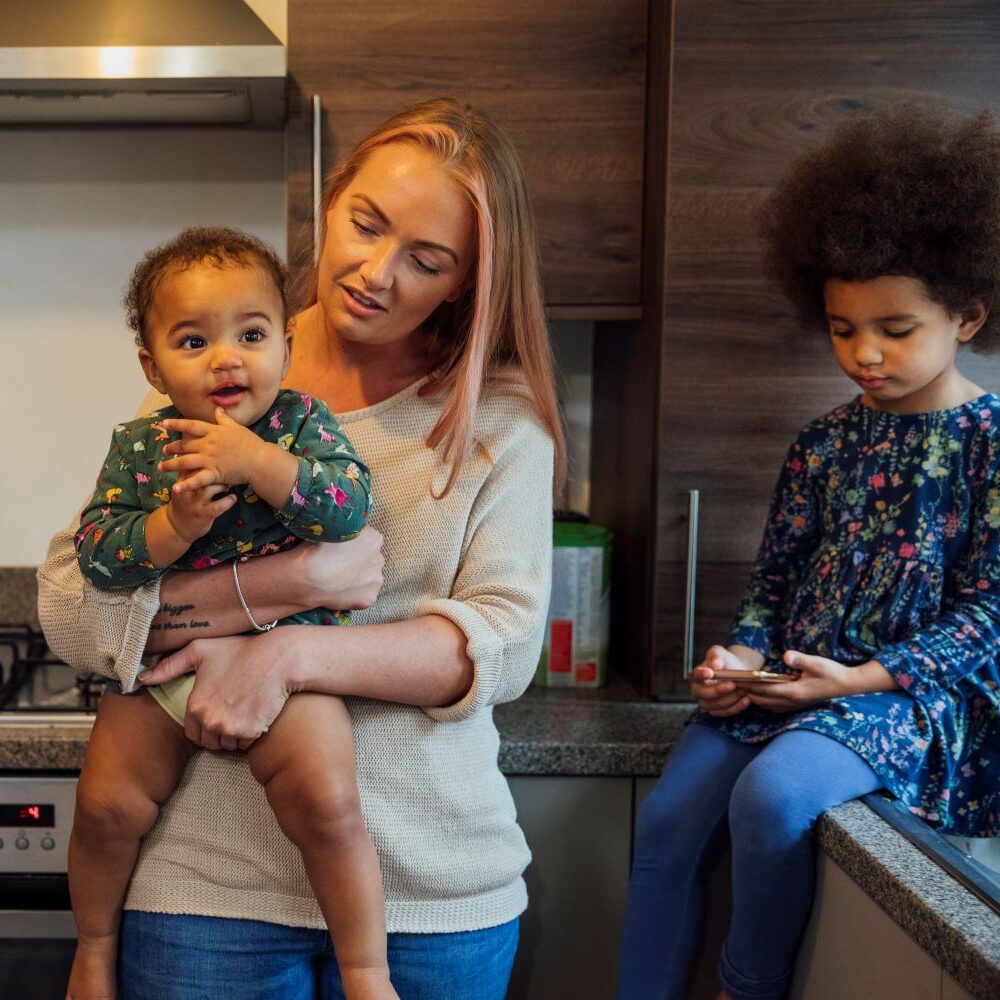
Call, text, email or web chat FamilyLine
If you’re feeling overwhelmed, worried or upset about any aspect of your family life, FamilyLine is here for you. We offer free emotional support and guidance on family relationships, conflict, parenting, caring, financial worries and more.
Contact FamilyLine